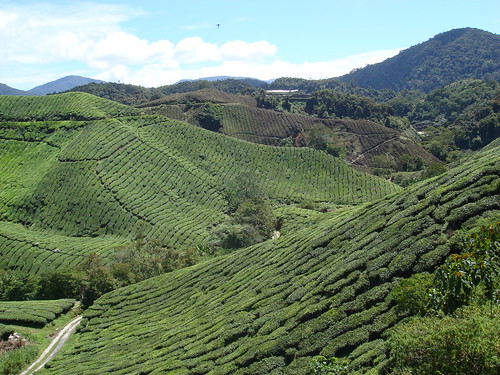What if I tell you that obesity could be infectious? Uhuh, like the flu or cold kind of infectious. Yes, the type that you could catch just by sharing the same breathing space. What would you say?
So this piece of news isn't really new. It has been discussed for more than a decade now. It all began when a scientist who was studying a type of virus that was killing lots of chicken in Bombay observed that most of the infected birds died fat. This was rather odd, since killer viruses usually left its victim all skinny and emaciated before they die. So as the story goes, the scientist, Dr. Dhurandar, moved to the States and faced some problems to import the virus samples from India to the US as the authorities were not very keen on bringing in the microscopic chicken slayers into the country. So undettered by the circumstances (*salute!*) he tried to find a similar strain in the human adenovirus group. Voila! The human adenovirus Ad-36 was discovered and received a lot of scientific attention thereafter.
So technicalities aside, let's just say that this human adenovirus comes from a family of about 50 sera types (variants) and some of them are known to be responsible for upper respiratory tract infections ranging from harmless cold to dangerous pneumonia and gastrointestinal problems as well as eye infection. The mode of transmission is through the air.
So how does it make us fat??
In August 2007, at a conference in Boston, Dr Dhurandar's colleague revealed that this particular virus makes our adipose tissue more efficient in storing fat. Which means bigger, plumper, meaner, juicier, fatter fat cells. Roaarrr!! And not only that, a tissue culture test suggested that the virus increases the efficiency of the adult stem cells to become fat cells by 3-fold. What does that mean?!? To explain briefly, excess calories are stored as fat in adipose tissue. Try to imagine it as somekind of balloon/sacs that can be filled to store liquid or air. So what this virus does is not only does it increase the number of balloon, it makes each balloon bigger too!! However, paradoxically, the level of serum lipid and triglycerides in infected obese individuals are considerably low as compared to uninfected obese subjects.
Need more evidence?
Statistically, it was found that the pattern of the spreading of obesity mirrored that of an epidemic. Meaning, it spreads like a disease. As for hard, cold science; some animal testing has been done and infected avian and primates showed significant weight and body fat increment. On human subjects, more than 500 people has been tested and the results showed that 30% of subjects who are obese are found to be infected as opposed to only 11% from slim group. And there was this intriguing piece of evidence that came from a twin study. So this pair of identical twin girls (that means exactly identical genetic composition) were pretty much of similar weight all of their lives until one of them left home for college and two years later became 2.5 stones heavier than her twin sister. Blood test confirmed that at some point, the twin who left home for college, was infected by Ad-36.
The twin study was however, contestable. For all you know, it was the college lifestyle (and the stress, and the parties, and the lazy-bum days :D) that was causing the weight-gain instead of the virus. And that notion is the main debate amongst obesity experts; lifestyle+genes vs pathogenic agents. Many has remained highly sceptical of the findings and insisted that obesity is mainly a lifestyle-related disorder. (So they agreed that it is a disorder? Lol!)
From a scientific point of view, there are so many interesting questions and possibilities to be addressed. Like, can we at some point come up with a vaccine against obesity? But anyway, what it is really, is a risk factor. If you are infected, that means you get fat easier. Just like the genetic factor, if you have a family history of obesity, that means the likelihood of you getting obese is higher. As simple as that. It still comes down to lifestyle and the choices you make that will determine whether or not those fat cells get filled.
Hehehe, I love it when science gets quirky.
 This flower is actually really, really tiny. Approximately 0.5 cm wide. At a glance, it looks like blue dots among the greens.
This flower is actually really, really tiny. Approximately 0.5 cm wide. At a glance, it looks like blue dots among the greens. Cactus at Cactus Point. I went a little bit crazy here and brought home 11 different types.
Cactus at Cactus Point. I went a little bit crazy here and brought home 11 different types.







